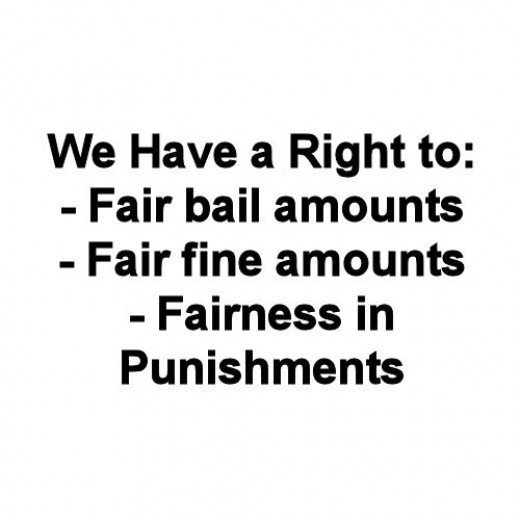ENCOURAGE MORE REAL ESTATE EXECUTIVES TO GO INTO POLITICS?
National Jan 31, 2017 Jarred Schenke, Bisnow, Atlanta - Forbes
If Donald Trump's election proved anything to Peebles Corp founder Don Peebles, it is that Americans value business leadership over political experience. So for someone who has successfully managed a portfolio of billions of dollars in commercial real estate, a city with an $80B budget should be just as easy.
Peebles is still mulling a run for New York City mayor in an attempt to unseat incumbent Bill de Blasio in the Democratic primary. He is just one of a handful of commercial real estate executives across the country who are eyeing public service in the wake of Trump's historic win of the U.S. presidency.
“I think Donald Trump's election as president is a lasting change,” Peebles said, regarding high-level political positions. "No more will a person seeking a political seat have to be a career politician. They will not need to have that experience of the career politician or the career public servant to go and seek America's highest office.”
Is This The Trump Effect?
This 2017 election season is seeing a handful of current and former real estate executives jumping into the political arena.
IV Capital's Sidney Torres IV is considering a run for mayor of New Orleans, and, in a Trumpian twist, will be starring in a reality show.
YJ Draiman, a retired real estate executive, is running for mayor in Los Angeles for a second time.
LA Mayoral Candidate YJ Draiman and Son David Draiman the frontman for Disturbed
And the biggest names of all are running for mayor in the president's hometown: Peebles, Massey Knakal brokerage co-founder Paul Massey and Abyssinian Development head Calvin Butts.
Attributing a plethora of political candidates with commercial real estate backgrounds seeking public office to Trump winning the presidency may be overstating things. But a successful Trump administration could certainly have a long-term, inspiring effect of more commercial real estate and other private sector executives pursuing public office, said Loyola Marymount University political science professor Richard Fox.
“It's way too early to say there's a Trump effect, but yes, there's a potential for that,” Fox said.
In a study he and American University professor Jennifer Lawless conducted for the National Science Foundation, Fox said there was a measurable uptick on the number of African-American high school and college students who expressed interest in pursuing political roles while Obama was president. Unless Trump crashes and burns, Fox said he would expect a similar effect under Trump.
The Perception Of Developers Is Changing
YJDraiman.org Miriam Draiman, David Draiman and YJ Draiman
“There is a negative connotation for being a developer," Draiman, a retired Chicago real estate investor who did hundreds of residential rehabs in Chicago with his former company, Bankers Realty, said. "I've seen a negative effect from various people who I met. They feel, when they see a developer, that it's a no-no."
Today, Draiman — whose son, David, is the Grammy-nominated frontman for the rock band Disturbed — is hoping to discover the power of politics in his quest for the Los Angeles mayoral seat in the March primary. He also ran for mayor in 2013, and in a 2011 interview with L.A. Weekly, he was making many of the same cases for himself Trump made in the presidential campaign.
"Some politicians were basically coerced, if you want to call it, to support a developer," he told the publication. "And remember, I was a developer myself, so I know where it's going to and where it's coming from."
This time, he is running on the platform of pushing for economic development and for pushing for smarter growth and development with developers in the city. Much of his rhetoric is similar; after all, it worked for Trump.
“The public as a whole feels that large, wealthy developers, since they contribute so heavily … to various other elected officials, they have an in, if you want to call it,” Draiman said. "They get by with certain benefits that the little guy doesn't get. And it's true. I won't deny it. I've seen it with my own eyes."
Terranova Corp founder Stephen Bittel takes exception to the idea that any real estate executive who jumps into the political arena does it because of Trump's success. For Bittel — who recently was elected as Florida Democratic Committee chairman — the longtime Democratic Party donor and activist was mulling an ascent long before Trump announced his candidacy.
“American history is replete with successful business leaders getting involved in the leadership of our country,” Bittel said. “I think Donald Trump, what he did for a living, has nothing to do with this. And to suggest that might even encourage people not to seek careers in public service. I don't think that the electorate cares about how you made your money, I think they care about how you lived your life.”
If You Can Build It, The Votes Will Come
Courtesy: Avison Young Kirk Rich
Atlanta native Kirk Rich has been enmeshed in the commercial real estate industry for decades. He is president of the Georgia Chapter of the Certified Commercial Investment Member organization; a board member of Invest Atlanta — the city's economic development arm; and a member of Georgia State University's real estate board.
He recently sold his boutique Atlanta third-party leasing and management firm to Avison Young, and has been tapped to head that firm's third-party platform.
Rich has also thrown his hat into the ring for Atlanta City Council's 6th District seat, which covers a wide swath of Atlanta's most prestigious neighborhoods, including Morningside-Lenox Park, Druid Hills, Virginia-Highland, Piedmont Heights, portions of Midtown; the nexus of growth since the last recession.
“I don't think Trump has affected people in real estate wanting to run for office,” Rich said, noting he did not support Trump for president. “But I think people are tired of politicians, and they're looking for people from the private sector. And Trump is about as private sector as it gets.” In Atlanta, the issues trumping voters' priorities in city council races are about growth and development, and the stress associated with it on traffic and infrastructure. And that's where Rich said real estate executives can be effective in public office.
“That opens the door for people who understand commercial real estate development to get involved,” he said. "And they need to get involved, because with the challenges we have I don't think they've been at the table enough already."
While voters might find appeal with a business person running government, at least in New York City, where Hillary Clinton snagged 80% of voters, “I'm not necessarily sure being in the real estate business, especially in light of President Trump, is an advantage,” Peebles said. In fact, he added, it could be a double-edged sword.
What being a commercial real estate executive does, Peebles said, is give him the ability to manage city issues and delegate authority. After all, one of the biggest issues facing New Yorkers is right in a developer's wheelhouse: housing affordability.
“Real estate developers, by and large, don't have a very specific technical skill set. They have broad vision and leadership skills to be able to lead a team and be able to execute,” he said.
But Peebles is also taking some cues from executives cum politicians like Trump and former New York Mayor Michael Bloomberg (whom Peebles credits for blazing a trail with New York voters to accept a private sector executive in high public office): he vows to largely self-fund his campaign, if he runs. Peebles also said he will instruct the executives running Peebles Corp not to do any real estate deals in New York City while he's mayor to avoid conflicts of interest. His firm also has projects in Charlotte, Philadelphia, Washington, DC, Miami and Boston.
Bittel is taking a similar tactic during his four-year stint as the Democratic chair: He will not draw a salary, nor will he seek expense reimbursements, he said.
“I'm doing this for all the right reasons,” he said.
Private World, Public Business
Courtesy: Jennifer Lawless
Lawless said it's not uncommon for politicians to have come from the private sector. Typically, a third of Congressional members have backgrounds in Corporate America or business ownership. The other common paths are from law, education and career political activism. Those ratios were consistent with congresses in 2001, 2008 and 2011, Lawless said, with Republicans substantially more likely to have a business background.
“When you think about local office, I'm not surprised by the real estate background [of candidates], because they really know the community,” she said.
Lawless said it is too early to tell if President Trump will inspire more real estate executives to enter politics, especially on a national level. That will come to bear in the 2018 election, perhaps.
“We know generally speaking when somebody becomes president of the United States," she said, "that that person's qualifications and background automatically become legitimate” in the eyes of the voters.
Rich said his experience in the industry is a plus on a city council that, essentially, is all about urban planning. If you run on the idea of smarter development that doesn't affect traffic negatively, “you'll win,” Rich said.
See Also: BGC Partners Is Taking NGKF Public Related Topics: Chicago, New Orleans, American University, Atlanta City Council, Don Peebles, Kirk Rich, Abyssinian Development Corp, Loyola Marymount University, Paul Massey, President Donald Trump, Trump Effect, YJ Draiman, Bankers Realty Capital, Jennifer Lawless, Richard Fox, Calvin Butts, Bakersfield, Kyle Carter, Carter Realty , Sidney Torres IV, IV Capital, Boise, Tommy Ahlquist, David Draiman , Disturbed
Read more at: https://www.bisnow.com/national/news/commercial-real-estate/is-there-a-trump-effect-on-real-estate-execs-entering-politics-70208?utm_source=CopyShare&utm_medium=Browser





















